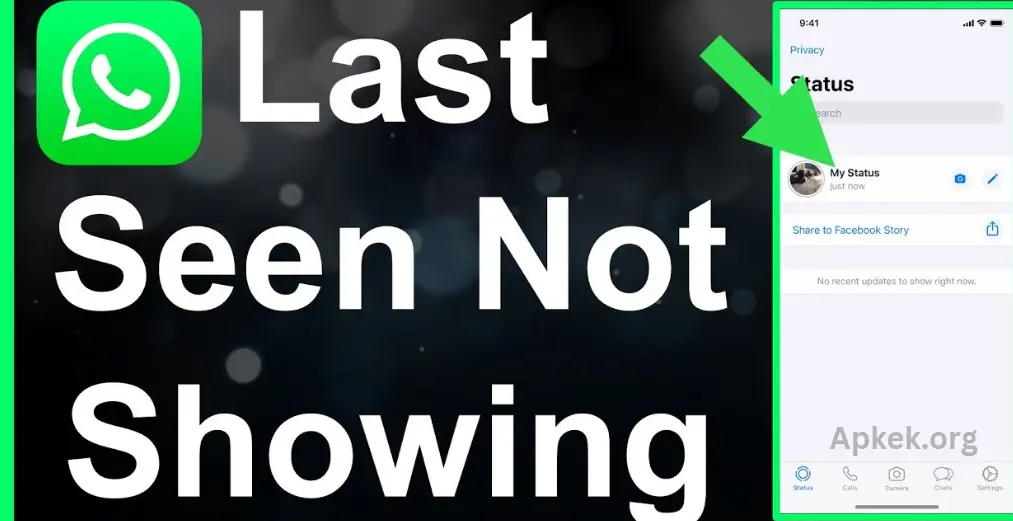WhatsApp has become a central part of daily communication. People are constantly exchanging photos, videos, voice notes, and messages—so much so that it often feels like life is unfolding through the app. With this constant flow of interaction comes a growing curiosity: Has the message been seen? Has it been ignored? The term “Unseen” now carries more weight than ever, raising questions about privacy, attention, and digital etiquette.
This article explores whether such hyper-awareness in messaging—knowing if someone has viewed your message or not—is truly beneficial or quietly harmful. Is this level of connectivity improving our relationships, or is it breeding anxiety and unnecessary pressure? We’ll also look into what major platforms like Google recommend for healthy digital habits, and what WhatsApp itself says about managing features like read receipts, privacy controls, and time spent on the app.
How is WhatsApp usage currently?
Today, mobile phones have become an essential part of everyday life. It’s almost rare to find someone without one. In fact, being without a mobile often seems unusual, as staying connected has become second nature. At the heart of this connectivity is WhatsApp—a platform used by people of all ages and backgrounds, from men and women to students and professionals.
WhatsApp offers more than just one-on-one messaging. It brings people together through group chats—whether it’s classmates studying together, coworkers coordinating tasks, or family members staying in touch across distances. It creates a digital space where conversations flow freely, no matter where you are.
The app allows users to share videos, photos, company documents, and even voice recordings. Whether it’s personal moments, professional updates, or casual conversations, WhatsApp makes it easy to stay in the loop and maintain strong connections in an increasingly digital world.
Why People Choose to Stay “Unseen”
Privacy is a big reason. Many people feel overwhelmed by the pressure to respond instantly just because someone knows they’re online. Turning off “Last Seen” helps set personal boundaries. It gives space to respond when ready, without appearing rude or distant.
Likewise, choosing not to let others know you’ve seen their status updates is about mental peace. Sometimes, you don’t want to be part of the silent expectations that come with being online: questions like “Why didn’t they reply?”, “They saw my status but ignored my message,” or “They were online, but didn’t check in.”
In a world that’s always watching, these settings offer a moment of silence.
You may also like it:
Voice Editor Autotune Audio Effect
Is It Selfish or Respectful?
Some argue that hiding your “Last Seen” and not viewing statuses can come across as avoiding connection. It might feel impersonal, especially in close relationships where people expect openness. But the counterargument is that true connection isn’t measured by online visibility—it’s measured by intent, presence, and sincerity when communication actually happens.
For many, using these privacy settings isn’t about hiding—it’s about reclaiming control. Everyone has different levels of comfort when it comes to digital interaction, and WhatsApp’s privacy tools are designed to respect that.
What Do WhatsApp and Google Recommend?
WhatsApp itself has evolved to support these choices. The app now lets you customize who can see your Last Seen, Status, and Online activity, and it even allows you to turn off read receipts while still receiving them from others. This is a clear signal: the platform supports flexible boundaries.
Tech leaders like Google also encourage healthy digital habits. Through its “Digital Wellbeing” initiative, Google promotes the importance of balance—taking breaks from screens, reducing notification overload, and using privacy tools to improve mental health.
Frequently Asked Questions
What does “Unseen Status” mean on WhatsApp?
Unseen Status refers to when a user views others’ statuses without letting them know, or chooses not to view statuses at all. This is usually done by turning off the “Read Receipts” or changing privacy settings.
What happens when you hide your “Last Seen”?
When you hide your Last Seen, other users can’t see the last time you were active on WhatsApp. However, depending on your privacy settings, you also may not be able to see their Last Seen in return.
Is it rude to hide your “Last Seen” or not view someone’s status?
Not necessarily. It’s a personal choice and often used to manage time, reduce stress, or maintain privacy. In close relationships, it’s helpful to communicate why you’ve set those preferences to avoid misunderstandings.
Can you still use WhatsApp normally with these settings turned off?
Yes, all other functions—sending messages, making calls, sharing media—work the same. You simply have more control over what others can see about your activity.
Do people get notified if you turn off your “Last Seen” or “Read Receipts”?
No, WhatsApp does not notify others when you change your privacy settings. However, they might notice the difference if they check your profile or status views regularly.
Can you turn off “Last Seen” and still see others’ “Last Seen”?
Only if you choose the custom option. If you set your “Last Seen” to be hidden from everyone, you also won’t be able to see anyone else’s. WhatsApp applies this setting mutually.
What are the mental health benefits of hiding “Last Seen” or avoiding status views?
Many users report feeling less anxious, less pressure to respond immediately, and more in control of their screen time. These settings can contribute to better digital wellbeing and personal boundaries.
Do Google or WhatsApp recommend using these features?
Yes. WhatsApp provides these features as part of its privacy toolkit. Google, through its Digital Wellbeing initiative, supports any settings that help users reduce digital overload and improve online habits.
Conclusion
In a world where instant replies and constant visibility have become the norm, using features like Unseen Status and hiding Last Seen on WhatsApp is not just about privacy—it’s about personal control. These settings offer users the freedom to manage their digital presence without the pressure of being constantly watched or expected to respond immediately.
There’s nothing inherently right or wrong about using these features. What matters is your intent. If these settings help you maintain mental peace, avoid digital fatigue, or set healthy boundaries, they are absolutely valid. At the same time, open communication with those closest to you can prevent misunderstandings and ensure relationships stay strong, both online and offline.

